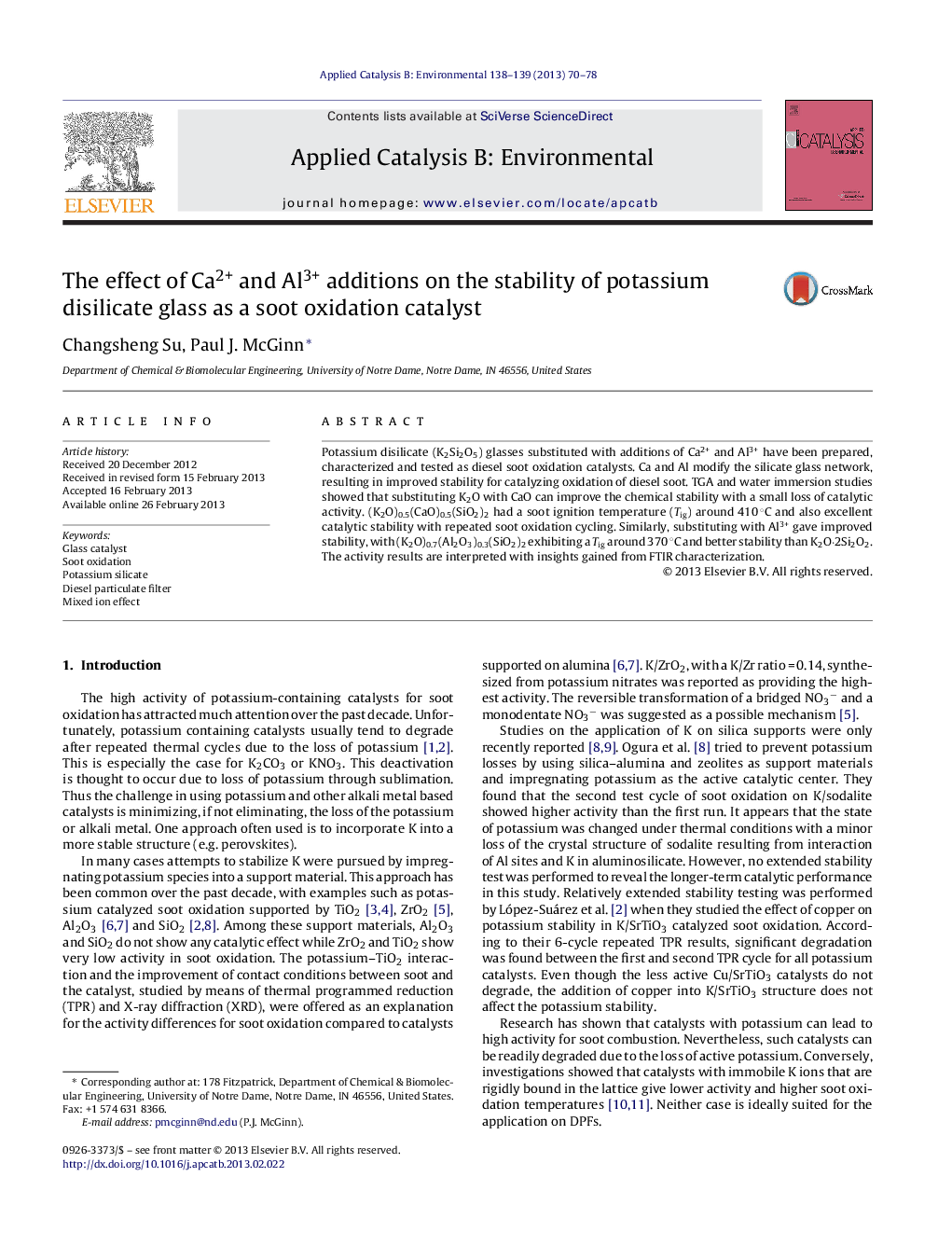| Article ID | Journal | Published Year | Pages | File Type |
|---|---|---|---|---|
| 46209 | Applied Catalysis B: Environmental | 2013 | 9 Pages |
Potassium disilicate (K2Si2O5) glasses substituted with additions of Ca2+ and Al3+ have been prepared, characterized and tested as diesel soot oxidation catalysts. Ca and Al modify the silicate glass network, resulting in improved stability for catalyzing oxidation of diesel soot. TGA and water immersion studies showed that substituting K2O with CaO can improve the chemical stability with a small loss of catalytic activity. (K2O)0.5(CaO)0.5(SiO2)2 had a soot ignition temperature (Tig) around 410 °C and also excellent catalytic stability with repeated soot oxidation cycling. Similarly, substituting with Al3+ gave improved stability, with (K2O)0.7(Al2O3)0.3(SiO2)2 exhibiting a Tig around 370 °C and better stability than K2O·2Si2O2. The activity results are interpreted with insights gained from FTIR characterization.
Graphical abstractFigure optionsDownload full-size imageDownload as PowerPoint slideHighlights► Simple alkali disilicate glasses can provide the basis for effective soot catalysts. ► Catalytic activity and stability can be tailored through Al and Ca substitutions for K in K2O·2Si2O2 glass. ► Substituting K2O with CaO or Al2O3 gives a glass with improved chemical stability, but too much degrades the catalytic activity. ► Stable glass catalysts with soot combustion temperatures below 400 °C have been achieved.
